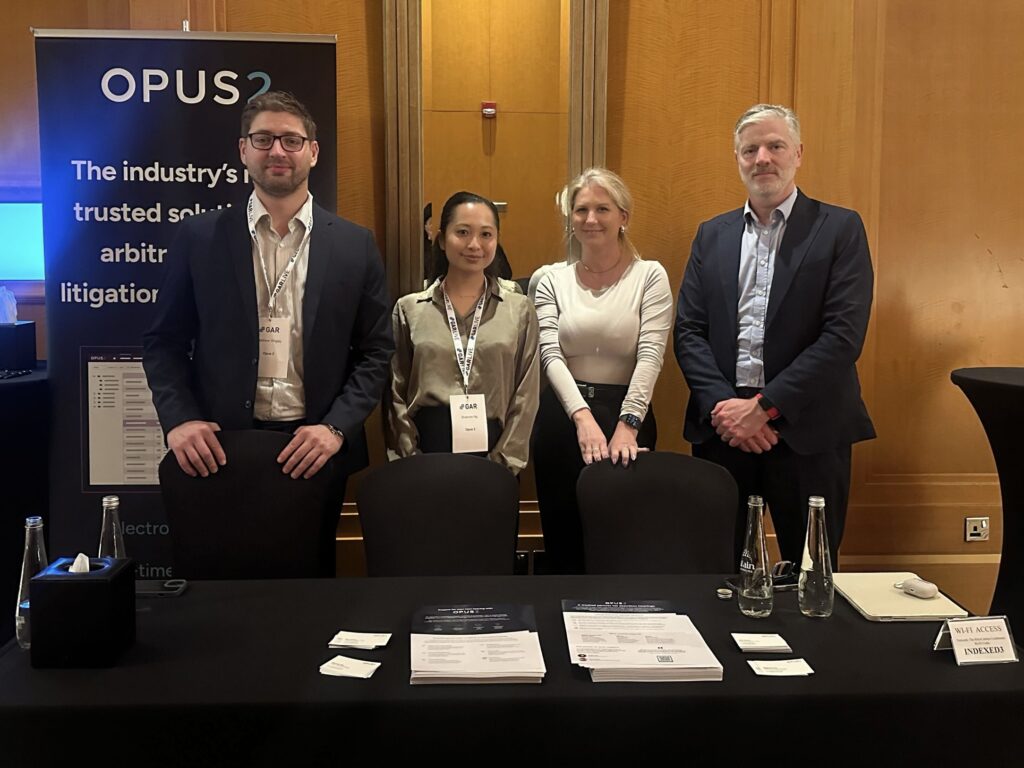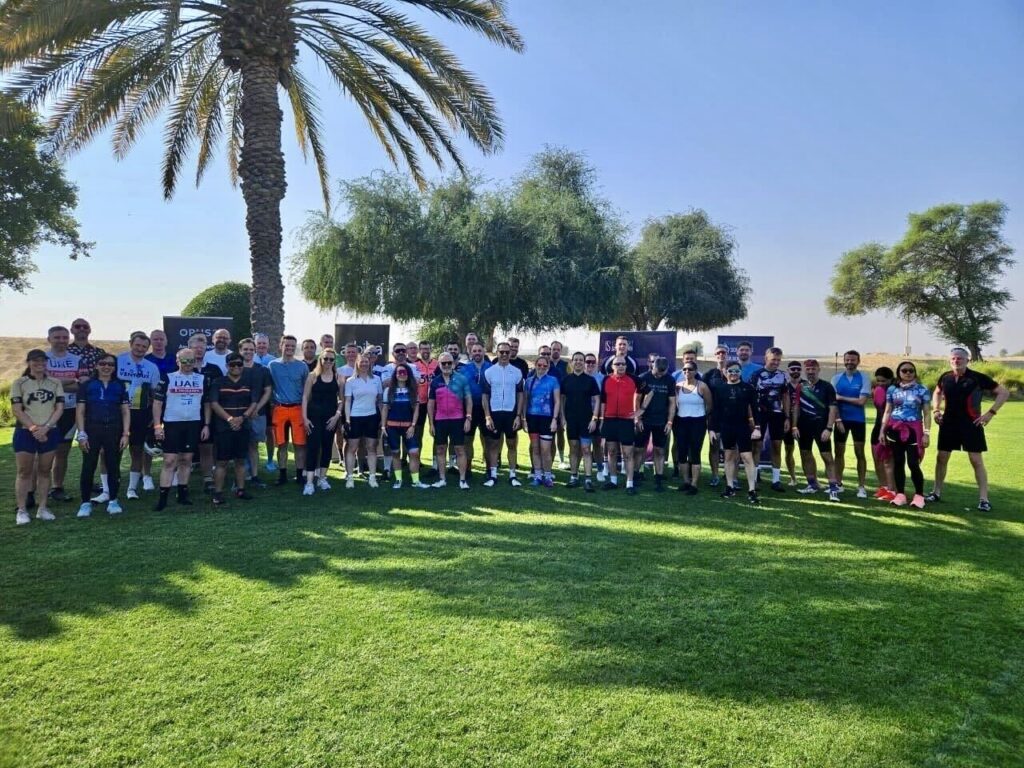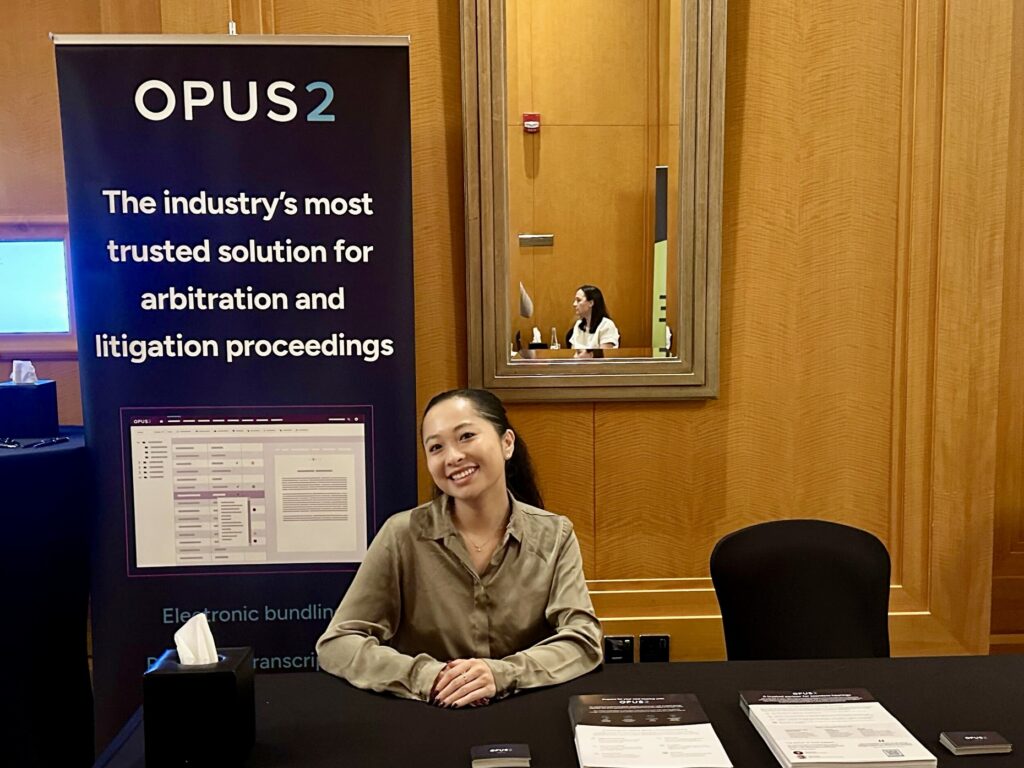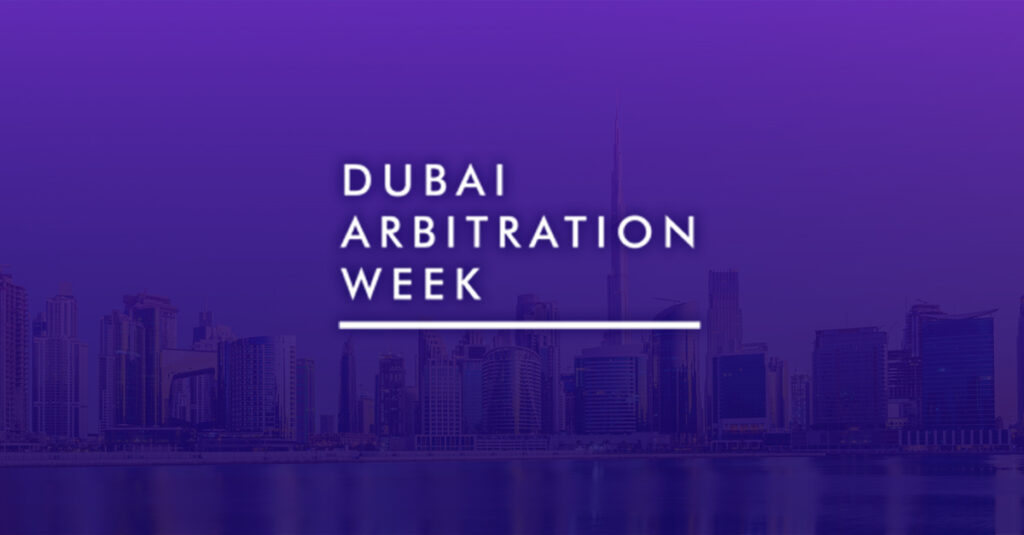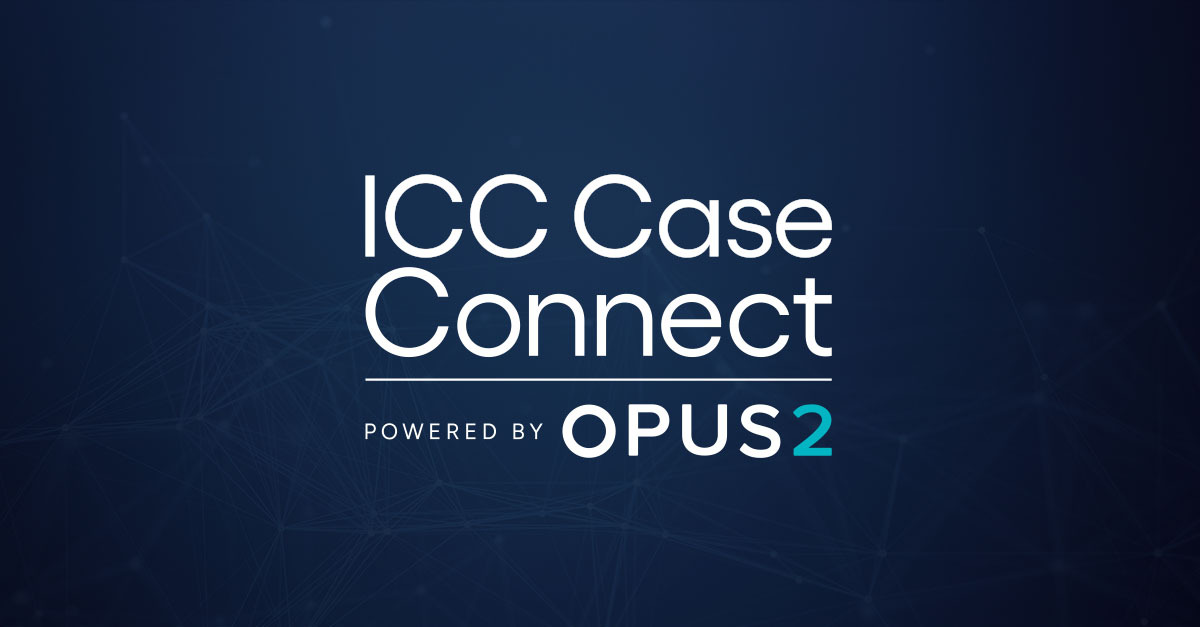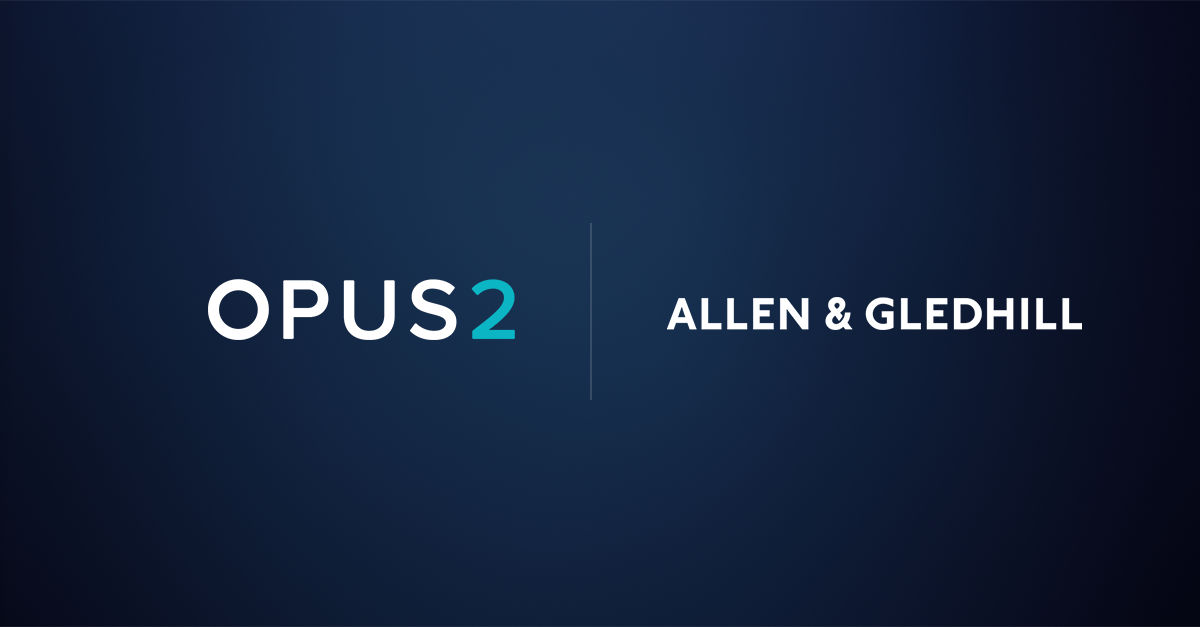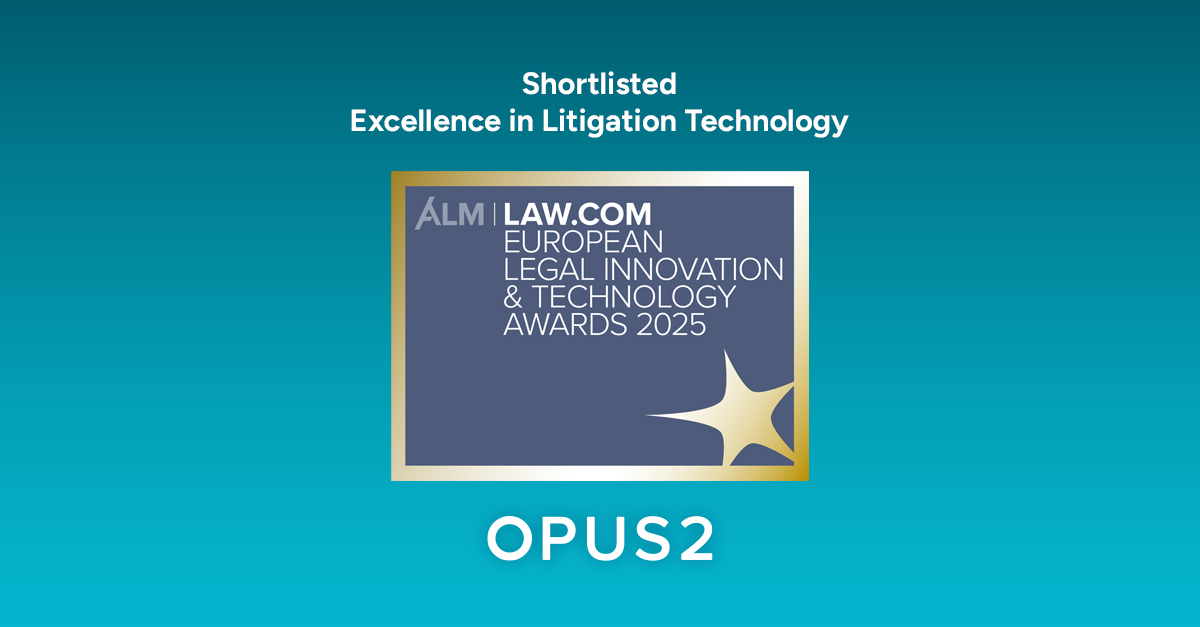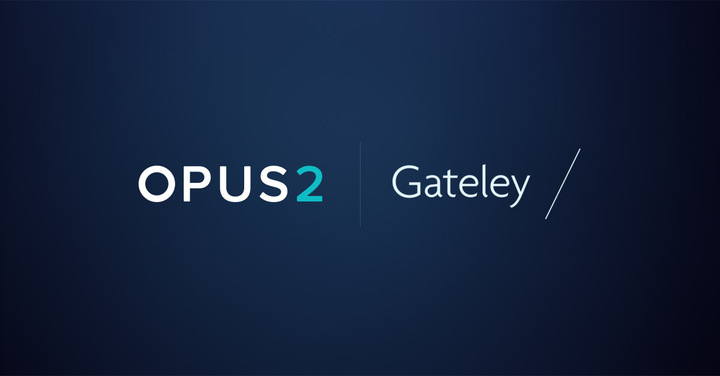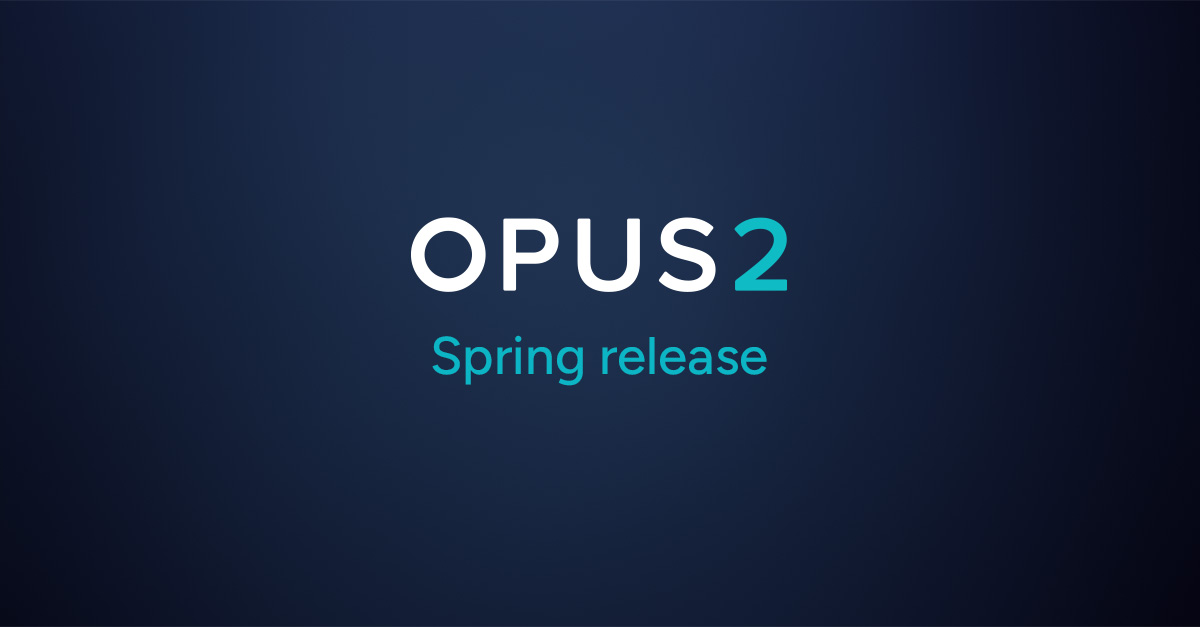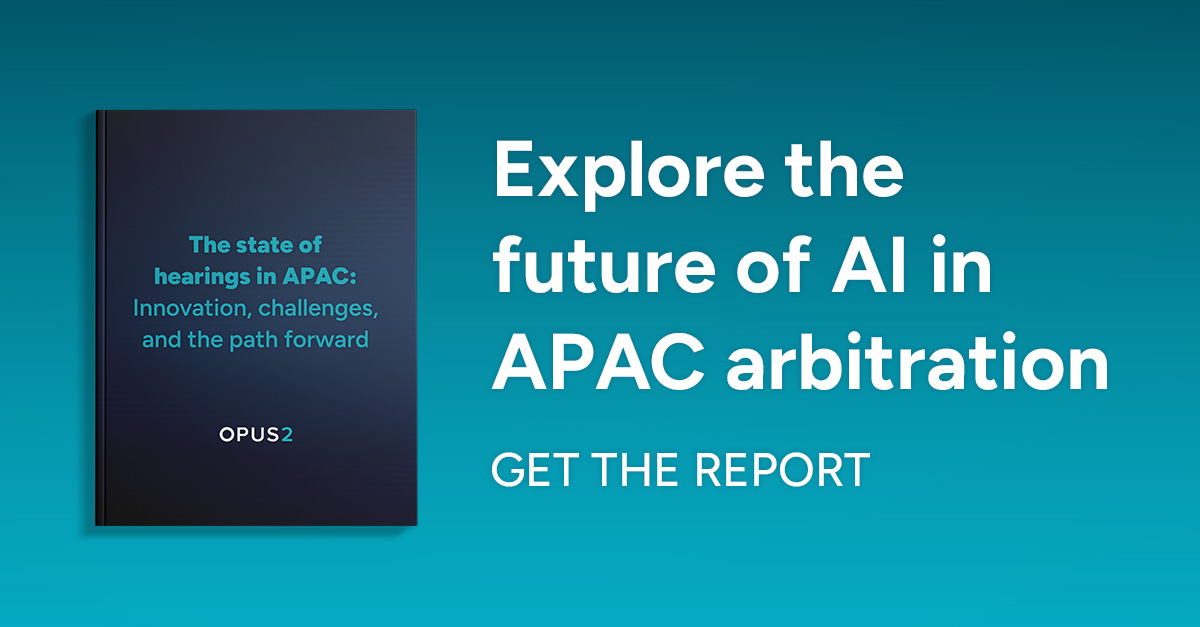At Dubai Arbitration Week (DAW) 2024, the arbitration community gathered to explore the forces reshaping dispute resolution. The event highlighted the evolution of international arbitration through a series of insightful sessions and discussions. From technological advancements and the cost of arbitration to evolving roles and strategies in arbitration, the topics explored reflect how the industry is adapting to the demands of globalisation, innovation, and fairness in commercial disputes.
This was Opus 2’s first time participating in Dubai Arbitration Week, and we are pleased to share our reflections on the key themes and insights we gained.
Here are three emerging themes that stood out from this year’s discussions:
1. Technology as a driving force in arbitration
A recurring theme throughout the week was technology’s transformative potential in arbitration. Matthew Rushton, Senior Consultant at Opus 2, shared insights during the session, Shaping the future of dispute resolution – how technology is changing arbitration, organised by DIAC and HKIAC. During the discussion, Matthew likened artificial intelligence (AI) to “adding springs to your steps” illustrating how technology should serve as an enabler rather than a disruptor. AI tools are already enhancing tasks like drafting and summarisation, but there is still considerable untapped potential.
Blockchain and smart contracts also received attention for their ability to ensure data integrity and enhance procedural efficiency. However, trust and accountability were highlighted as critical factors for their successful adoption.
2. Balancing costs and ensuring access to justice
The rising costs of arbitration were another major focus. One session explored different cost allocation models, including the “loser pays all” approach and hybrid systems. Panellists noted that rising legal fees and procedural complexities are testing arbitration’s reputation as a cost-effective alternative to litigation.
Technology continues to emerge as a key enabler for addressing these challenges. Platforms that introduce efficiencies across various stages of arbitration, from hearing preparation and evidence management to virtual hearings, can help to reduce costs and make arbitration more accessible.
These advancements underscore the value of integrating technology into dispute resolution practices, particularly for moderate-sized disputes. The UAE’s dual arbitration framework—spanning common law and onshore systems—highlights the need for digital solutions that ensure accessibility by adapting to a diverse range of cases.
3. Evolving roles and strategies in arbitration
The arbitration landscape is evolving, with in-house counsel and arbitrators playing increasingly strategic roles. In-house legal teams are now key players in decision-making, integrating legal insights into corporate strategies and fostering collaboration across departments. Meanwhile, arbitrators are being encouraged to take a more proactive approach to managing costs and ensuring procedural fairness, particularly in cross-border disputes where cultural norms and procedural expectations vary.
At the same time, ethical advocacy and cultural sensitivity are critical components of arbitration. Advocacy strategies that prioritise clarity, simplicity, and respect for tribunal time are essential for effectively handling complex international cases. These principles become even more significant when cultures and perspectives differ, introducing unique challenges to the proceedings.
Addressing these challenges requires tools that enable efficiency, collaboration, and adaptability. Opus 2’s Hearings platform meets these demands by fostering seamless coordination across jurisdictions and equipping arbitration professionals with tailored tools to address the demands of an increasingly globalised and nuanced field.
Looking ahead: Innovation, trust, and fairness
As DAW 2024 concluded, it became evident that technology, trust, and a strong commitment to fairness will shape the future of arbitration. New challenges, such as incorporating ESG considerations and adapting to evolving AI regulations, are expected to transform the field, creating both opportunities for innovation and avenues for growth.
One analogy shared during the week likened AI’s current trajectory to the early days of electricity—its potential is vast, but its ultimate impact is still unfolding. This sentiment underscores the transformative possibilities of technology, particularly when combined with thoughtful implementation and a focus on maintaining transparency and accountability.
DAW 2024 also underscored the importance of collaboration and adaptability in shaping the arbitration landscape. As the field evolves, Opus 2 remains at the forefront of these developments, continuously innovating to support the arbitration community. From AI-powered tools to localised support in key arbitration hubs like the UAE, Opus 2 is committed to driving transformation and equipping arbitration professionals with the tools they need to adapt, collaborate, and deliver justice efficiently.
